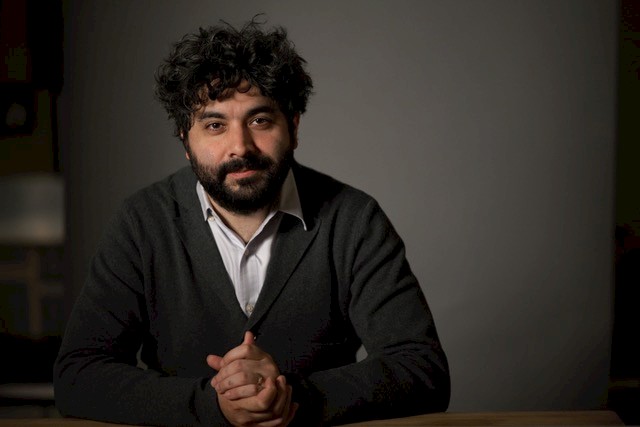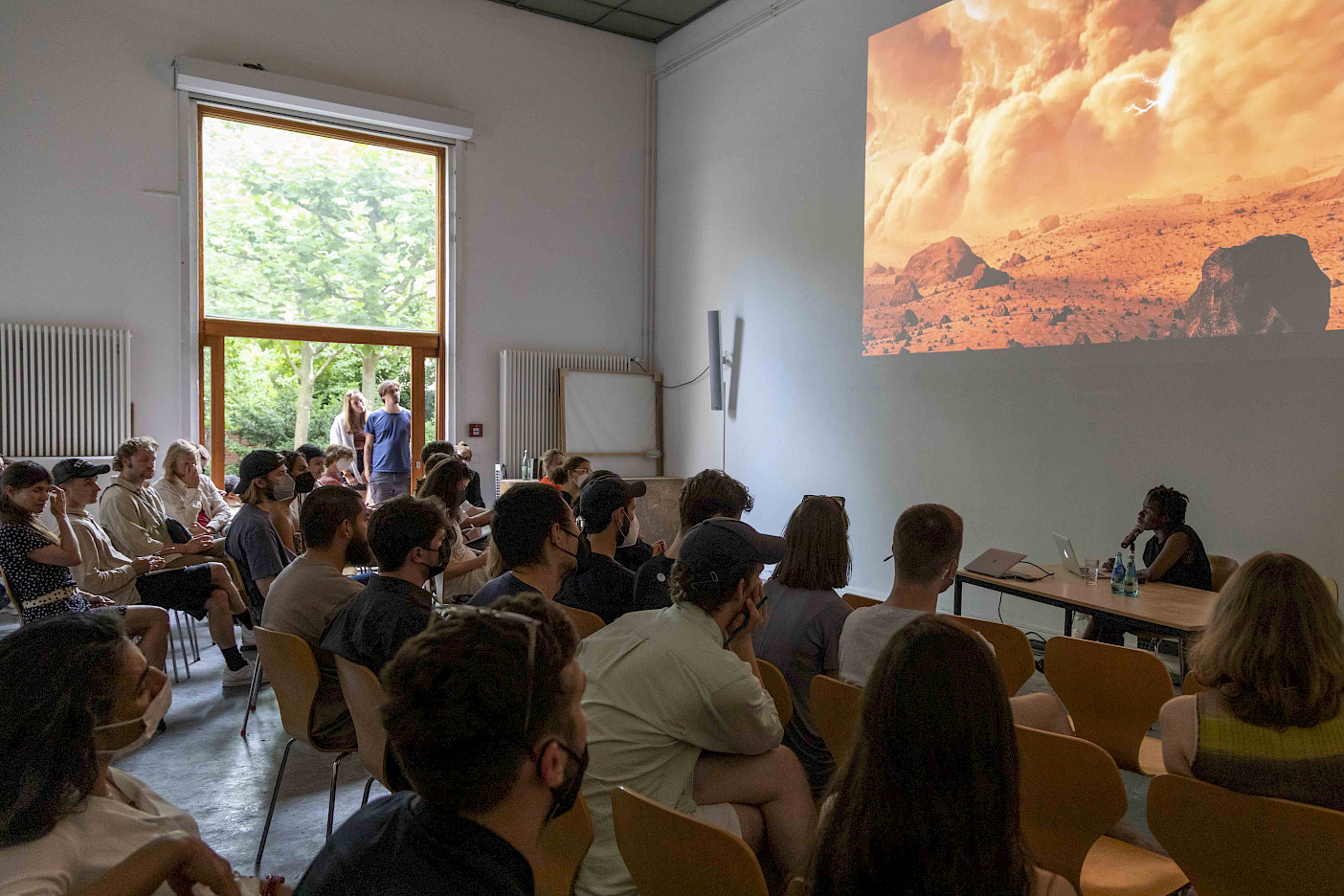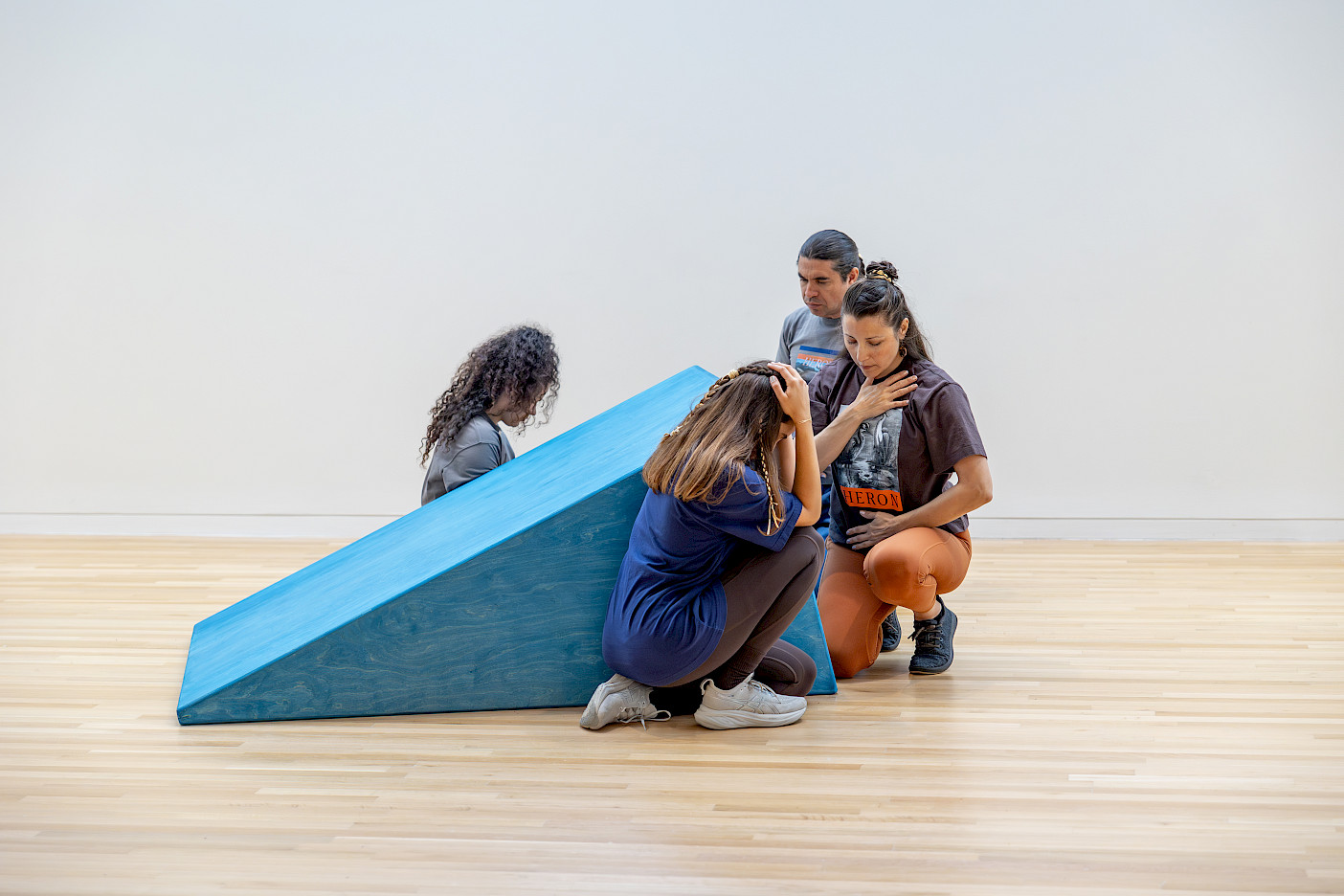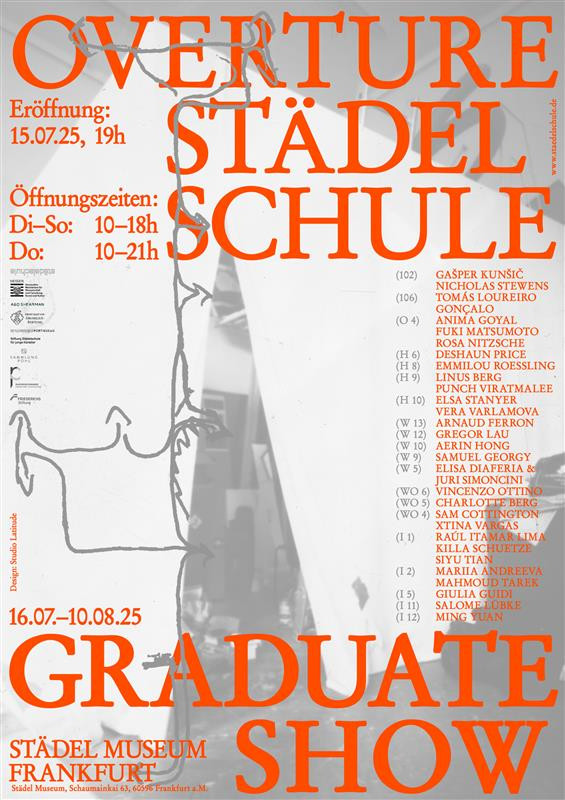Städel Museum, Schaumainkai 63, 60596 Frankfurt am Main
Opening hours: Tue–Sun, 10am–6pm; Thu, 10am–9pm
Opening: Tuesday, July 15, 2025, 7pm–10pm
Today
Ongoing
Summer Semester 2025
Information, 22 April – 25 July 2025
Upcoming
Tanya Lukin Linklater: _structural_flex_
Lecture, 8 July 2025, 19:00
Overture – Graduate Exhibition
Exhibition, 15 July – 10 August 2025, 19:00
Florence Jung: Doing nothing?
Lecture, 24 June 2025, 19:00
Rabih Mroué: Shot/Counter Shot. Rethinking the Reverse
Lecture, 17 June 2025, 19:00
Adir Jan & Emrah Gökmen: On the Shores of the Munzur, on the Shores of the Murat
Concert, 12 June 2025, 20:00
Miloš Trakilović: Love Songs & War Machines
Lecture, 10 June 2025, 19:00
Anna Roberta Goetz: 36. Bienal de São Paulo. Not All Travellers Walk Roads / Of Humanity as Practice
Lecture, 3 June 2025, 19:00
Jimmy Robert
Lecture, 27 May 2025, 19:00
Klein: No Degree, No Budget, No Problem
Lecture (20.5.) Concert (21.5.), 20 – 21 May 2025
Julian Irlinger: Reanimation and Reconstruction
Lecture, 13 May 2025, 19:00
İmran Ayata & Bülent Kullukçu: Songs of Gastarbeiter
Music Lecture, 8 May 2025, 19:00
Enzo Camacho & Ami Lien: Langit Lupa (Heaven Earth)
Screening (5.5.) Lecture (6.5.), 5 – 6 May 2025, 19:00
Helen Marten: Animal Hours
Lecture, 29 April 2025, 19:00
Application: Master of Arts Program in CURATORIAL AND CRITICAL STUDIES
Application, 10 April – 31 May 2025
Semester Break Spring 2025
Information, 14 February – 21 April 2025
Water Cooler Talks 2025
Event, 8 – 9 February 2025
Rundgang 2025
Exhibition, 7 – 9 February 2025, 10:00–20:00
Trisha Donnelly
Lecture, 30 January 2025, 19:00
Kerstin Brätsch: Parasite Painting
Lecture, 28 January 2025, 19:00
Emma Enderby: Curating in and out of Place
Lecture, 14 January 2025, 19:00

Ajay Singh Chaudhary: The Long Now: Ecology, Time, and Modernism After the End of History
Two of the greatest confusions regarding climate change are temporal and political. Green discourses tend to toggle between an apocalyticism and a "universal" hope. In this talk, Chaudhary presents his recent research on a political theory for the Anthropocene. Long after the infamous "End of History," climate poses a very different temporal impasse that challenges the entirety of how we conceive political-time. Rereading a wide-range of thinkers from Hegel, Marx, and Benjamin to Berlant, Fisher, and Munoz, alongside contemporary climate science literature, we encounter a receding of horizons that, far from eliciting a shiftless present, invites a tremendous expansion in the possibilities for contemporary political imagination. Against the mistaken supposed universality of climate change, both time and politics in this particular moment in the Anthropocene - The Long Now - are inherently agonistic; the subject of intense political struggle. The Long Now frames the past as geologically substantive and the "future" as potentialities already 'fettered' in the present. Far from some universal present needing to sacrifice for an idealistic "future," it is present exhaustion - economic, social, political, ecological - that drives climate crisis. Redefining what we might understand "ecomodernism" - in all of its technical, aesthetic, and political implications - is a crucial intervention towards a very different critical, mass democratic politics for the Anthropocene.
Ajay Singh Chaudhary is the executive director of the Brooklyn Institute for Social Research and a core faculty member specializing in social and political theory. He holds a Ph.D. from Columbia University and an M.Sc. from the London School of Economics. His research focuses on social and political theory, Frankfurt School critical theory, political economy, political ecology, media, religion, and post-colonial studies. He has written for the The Guardian, n+1, Los Angeles Review of Books, Quartz, Social Text, Dialectical Anthropology, The Baffler, The Hedgehog Review, Filmmaker Magazine, and 3quarksdaily, among other venues. Ajay is currently working on a book of political theory for the Anthropocene.


